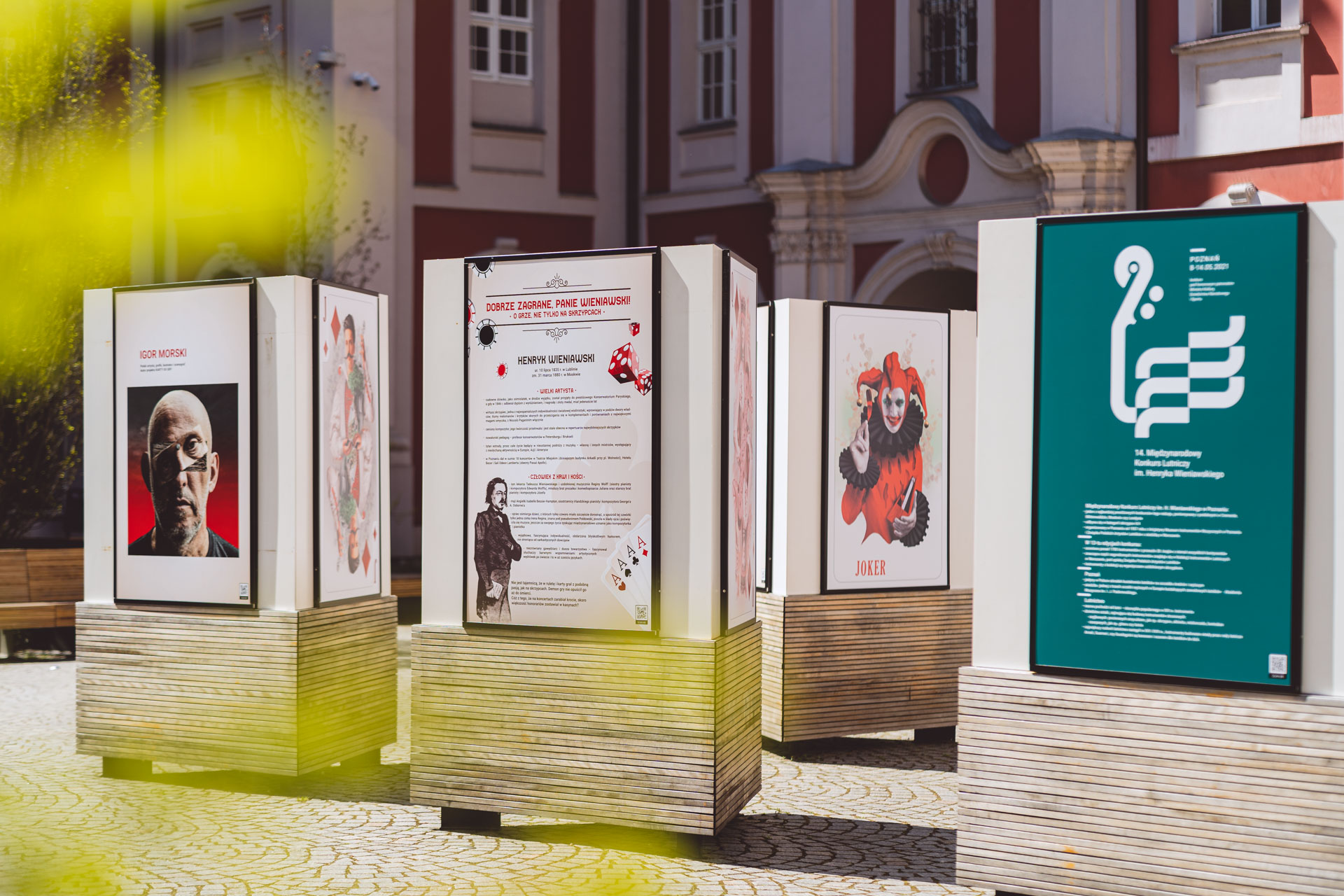
Concurrent exhibition with the Competition
Between 7-26 May, in the open courtyard of the Poznań City Hall, at Plac Kolegiacki 17, an open-air exhibition entitled 'Well played, Mr Wieniawski! On playing (not just the violin)' is held, the accompanying event of the 14th International Henryk Wieniawski Violin Making Competition. Works of a well-known and respected artist Igor Morski are presented there in a form of specially designed playing cards. All of them inspired by violin music. The exhibition also presents a less known face of the Polish violinist and composer, which was his love for... gambling.
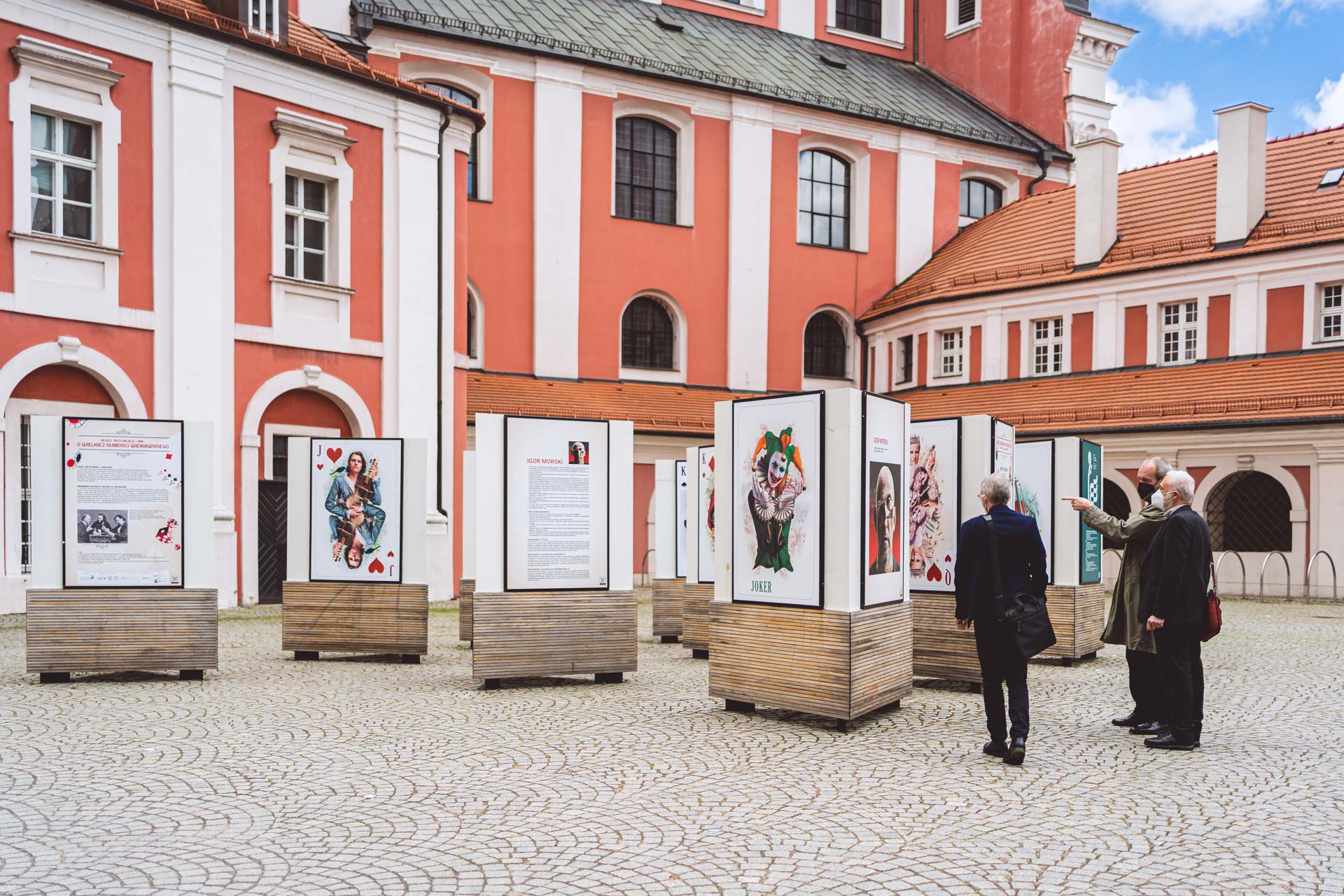
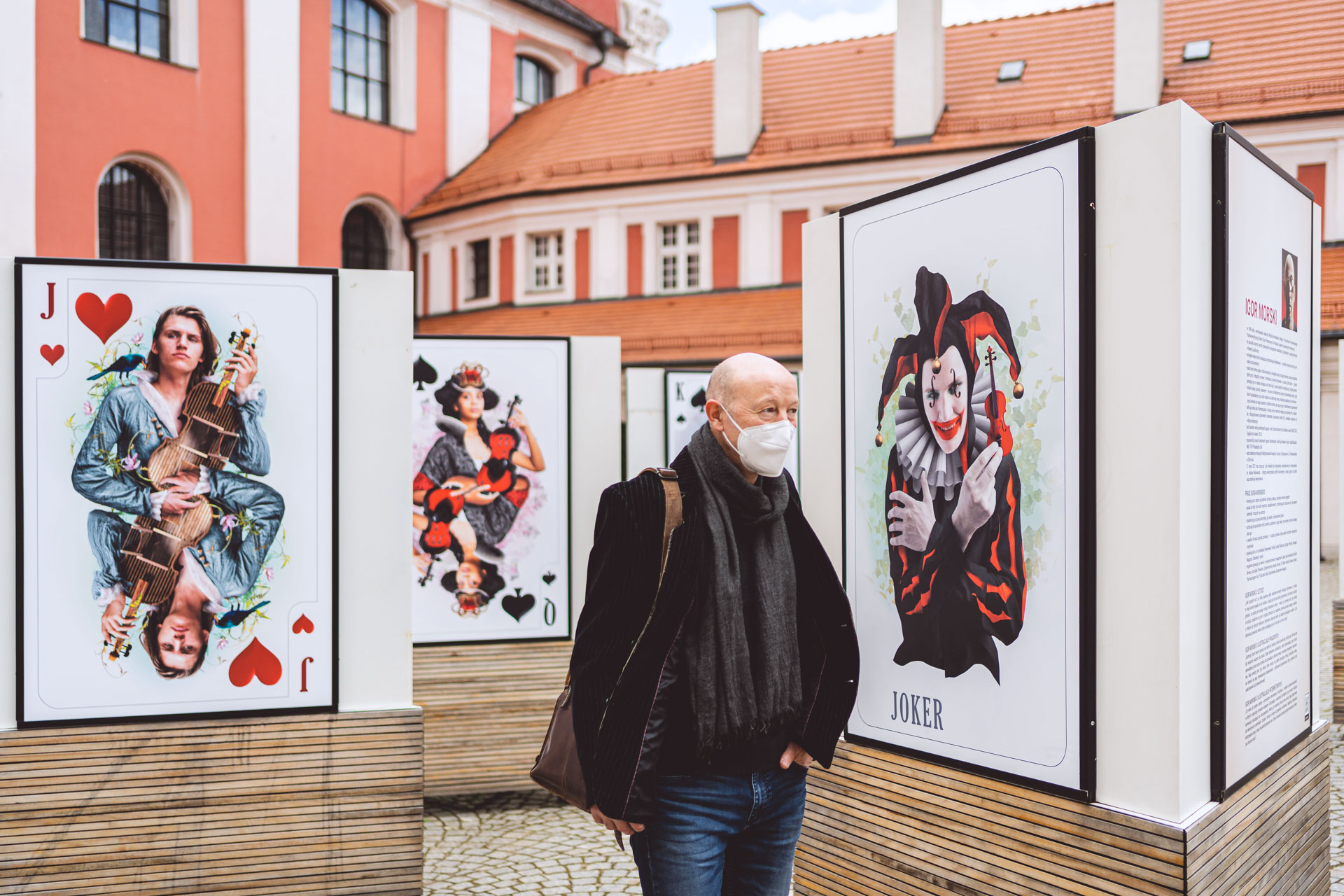
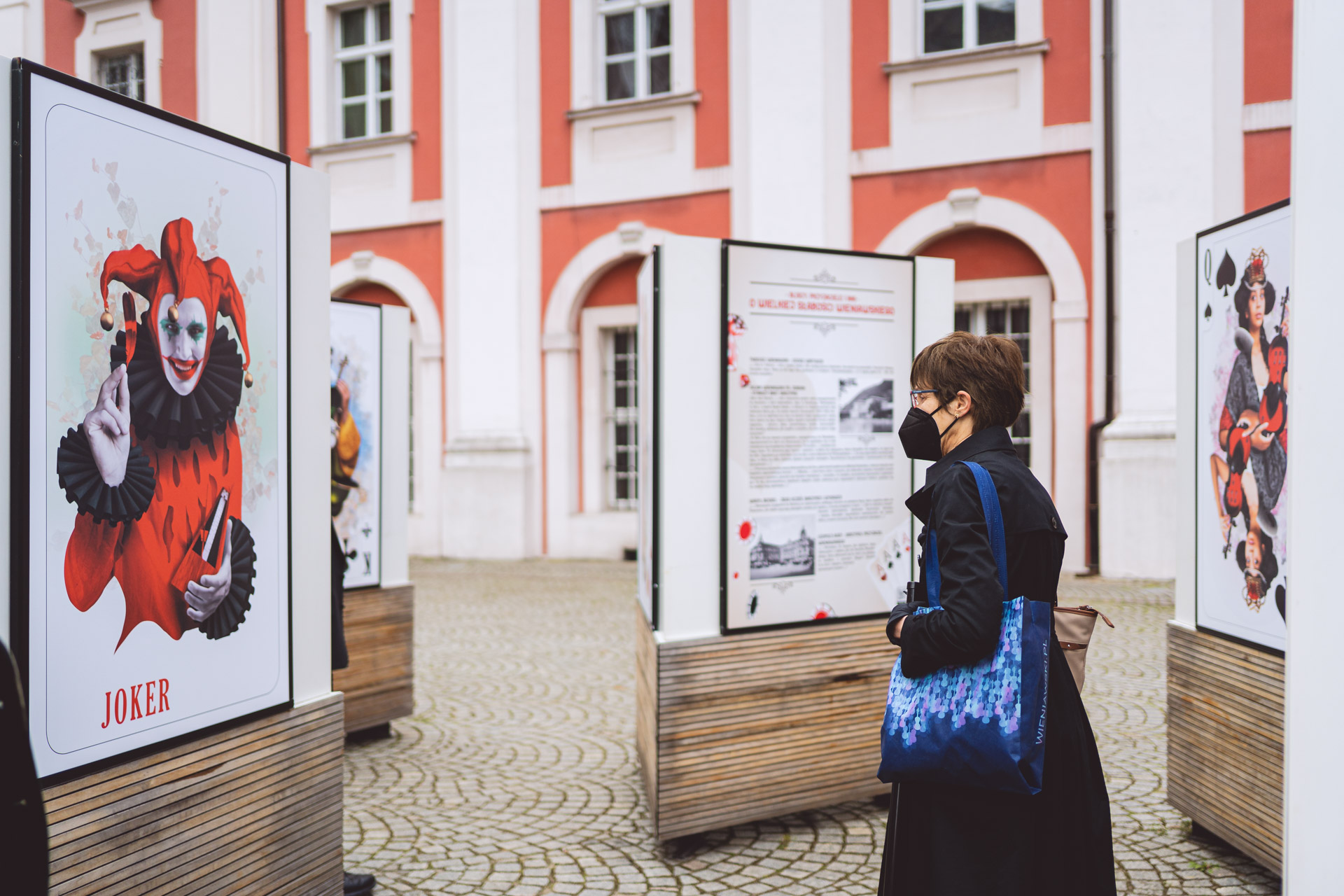
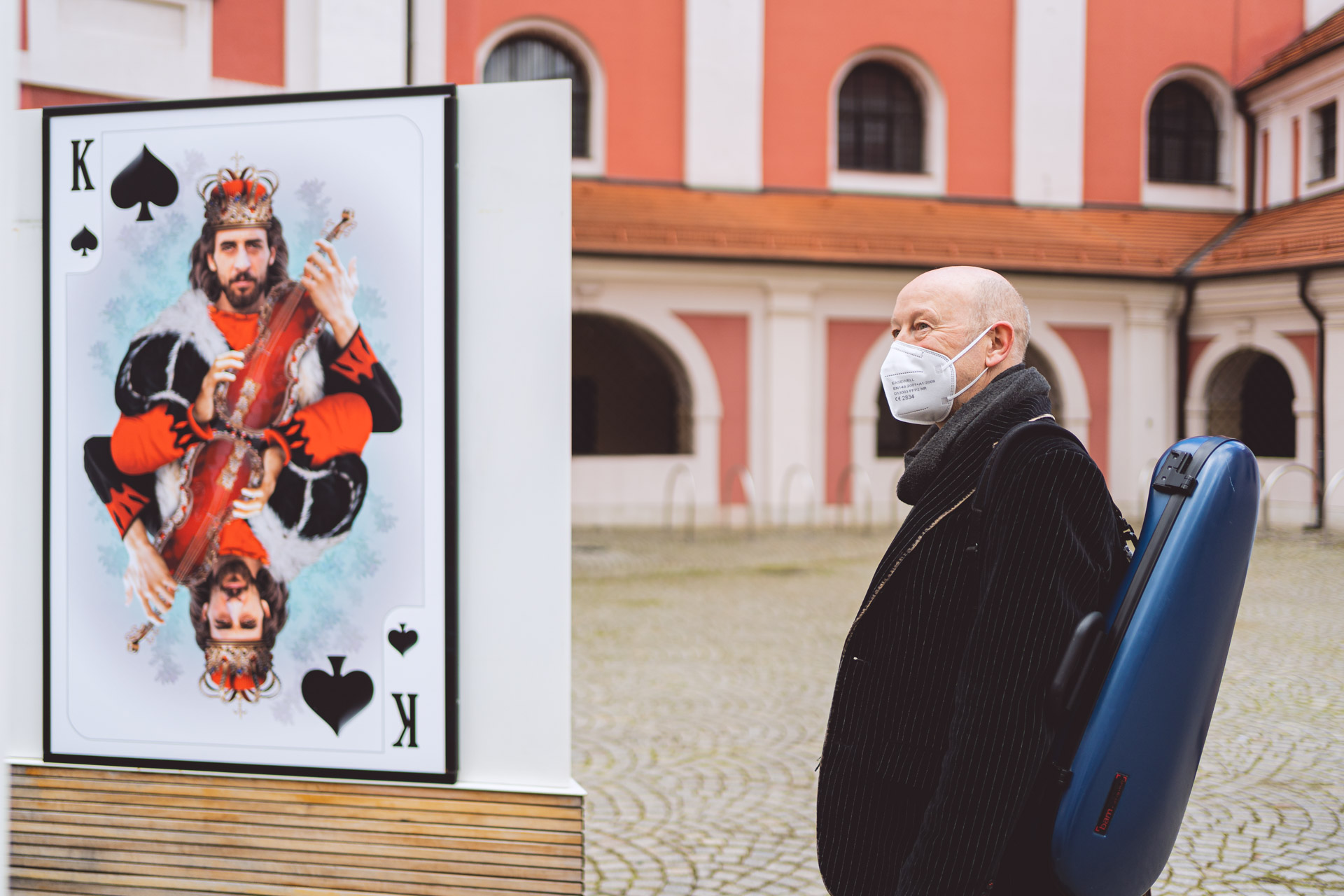
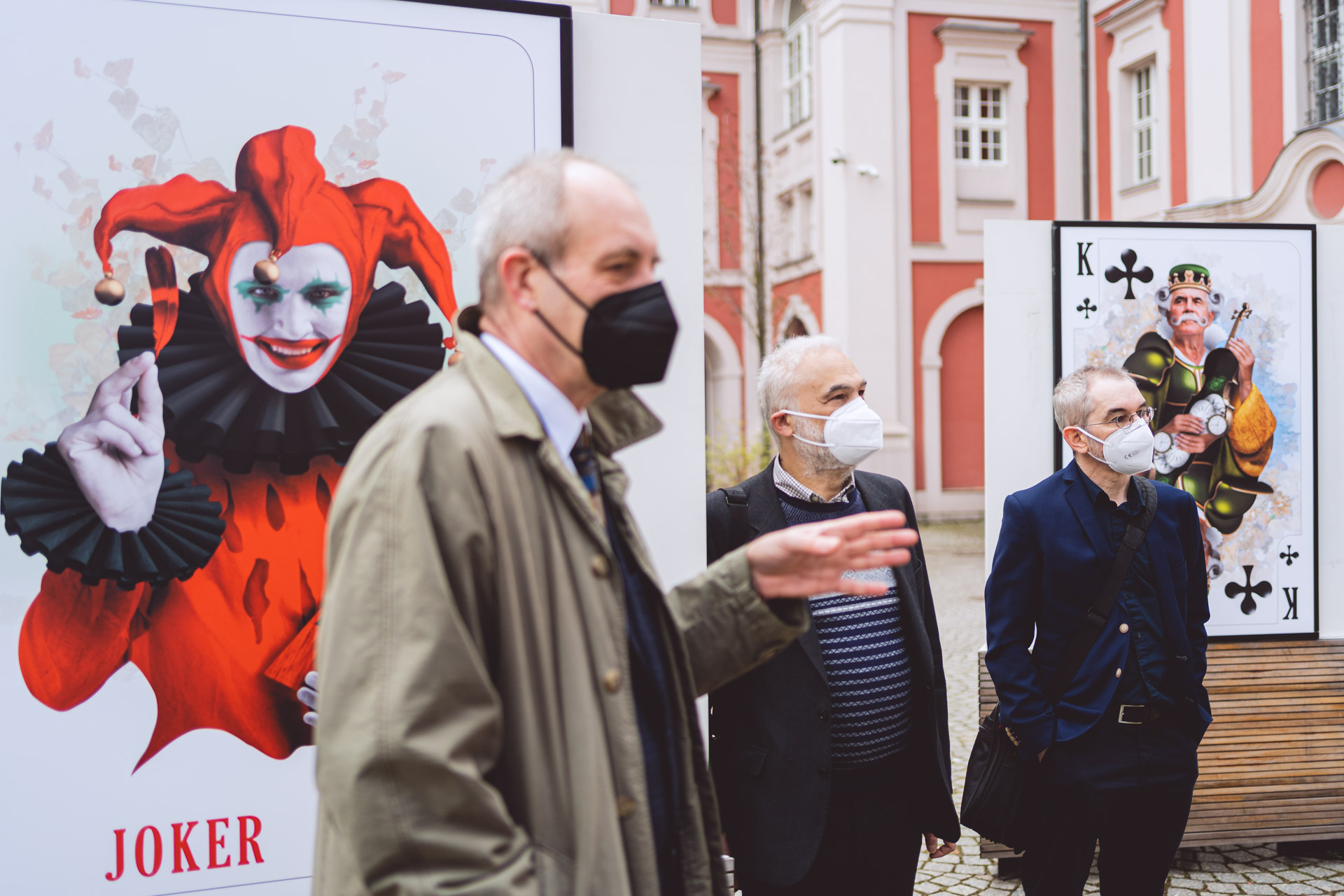
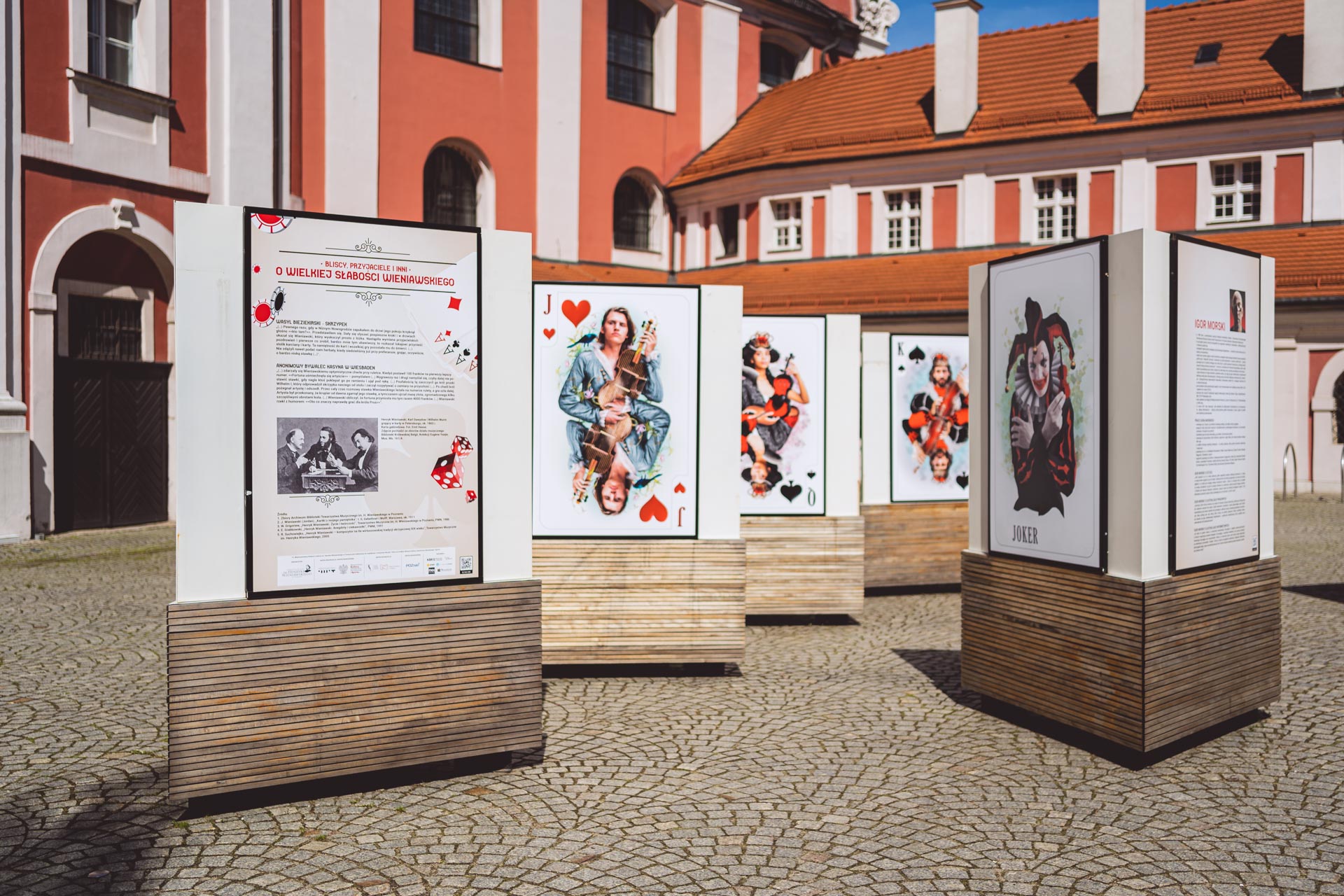
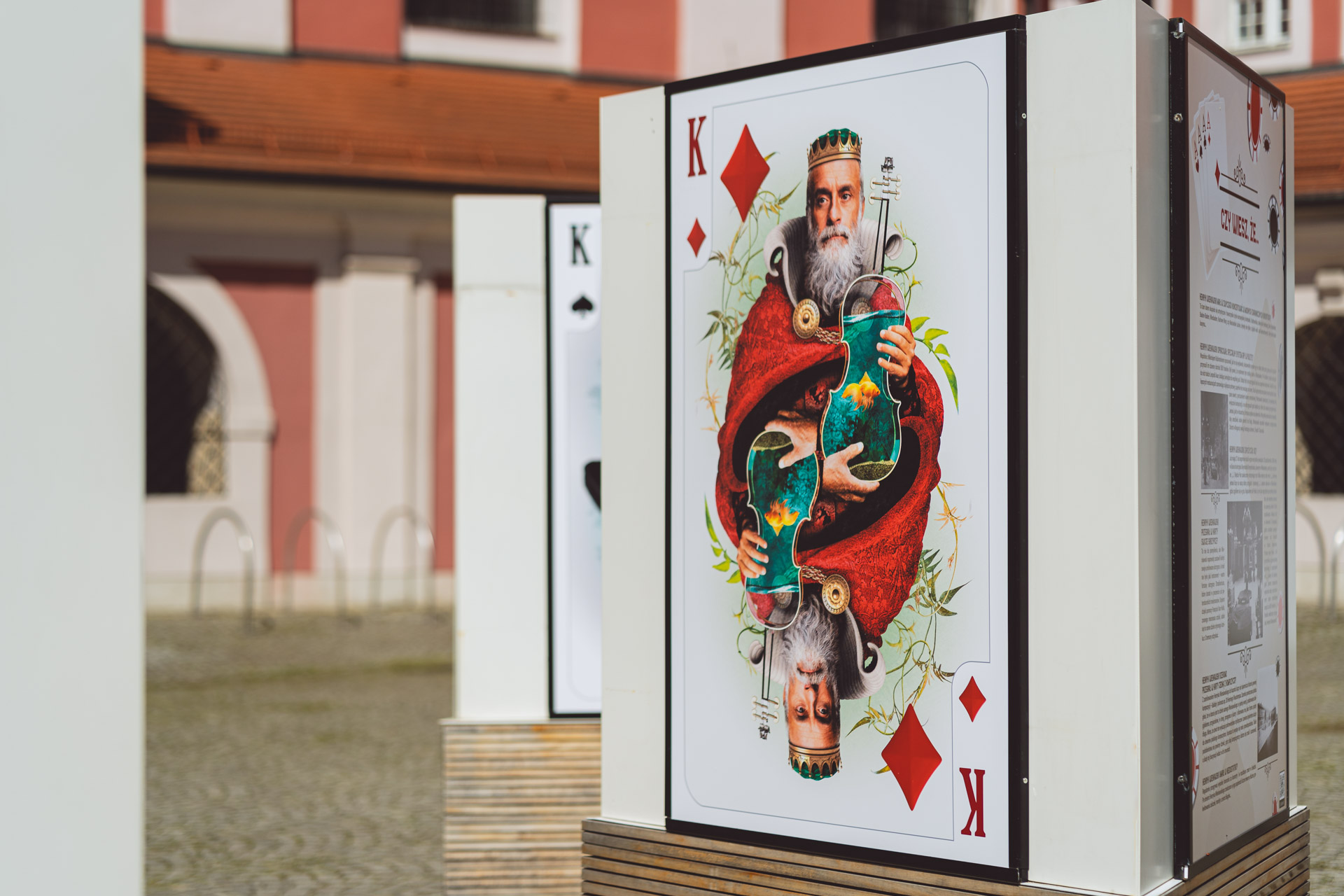
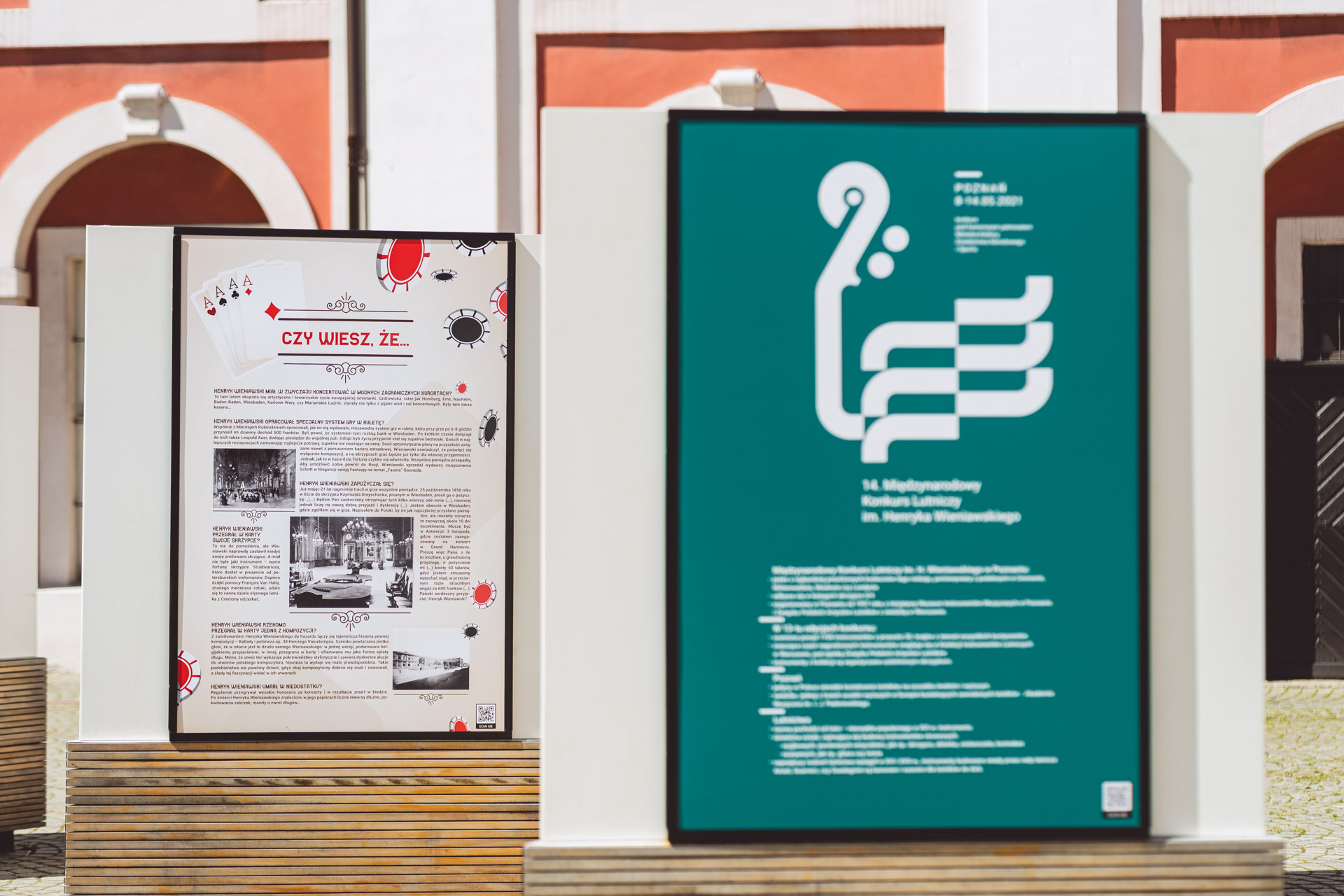
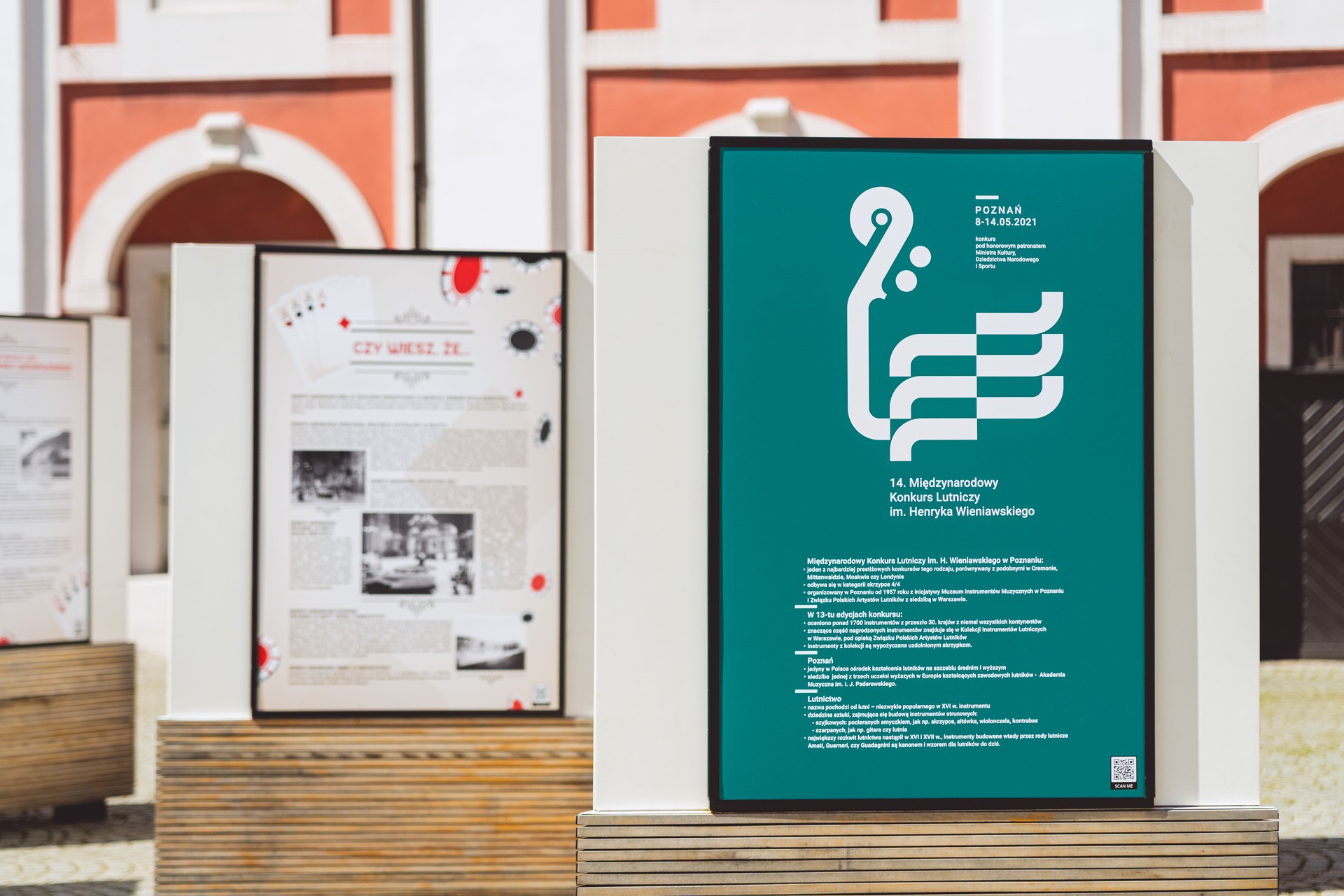
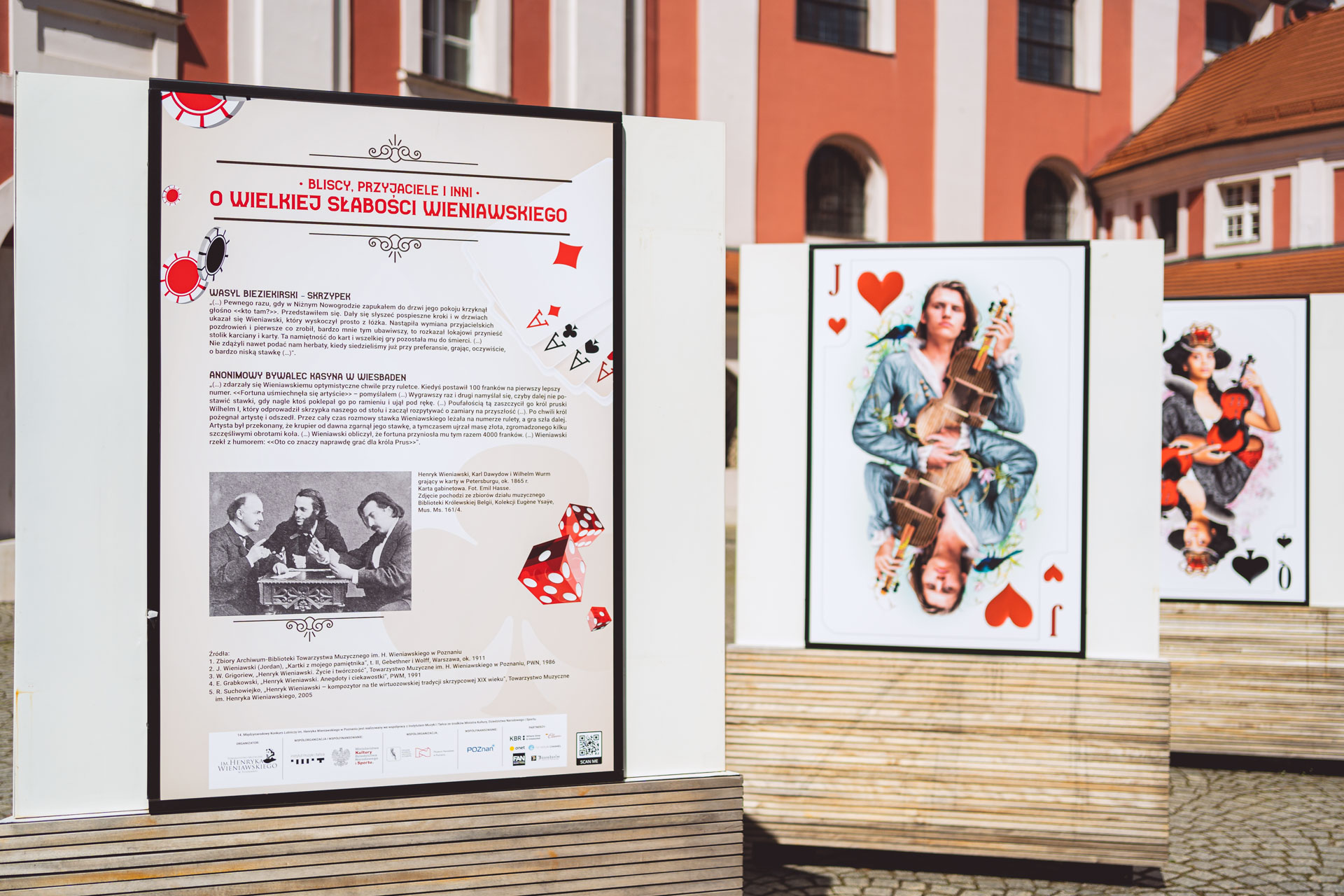
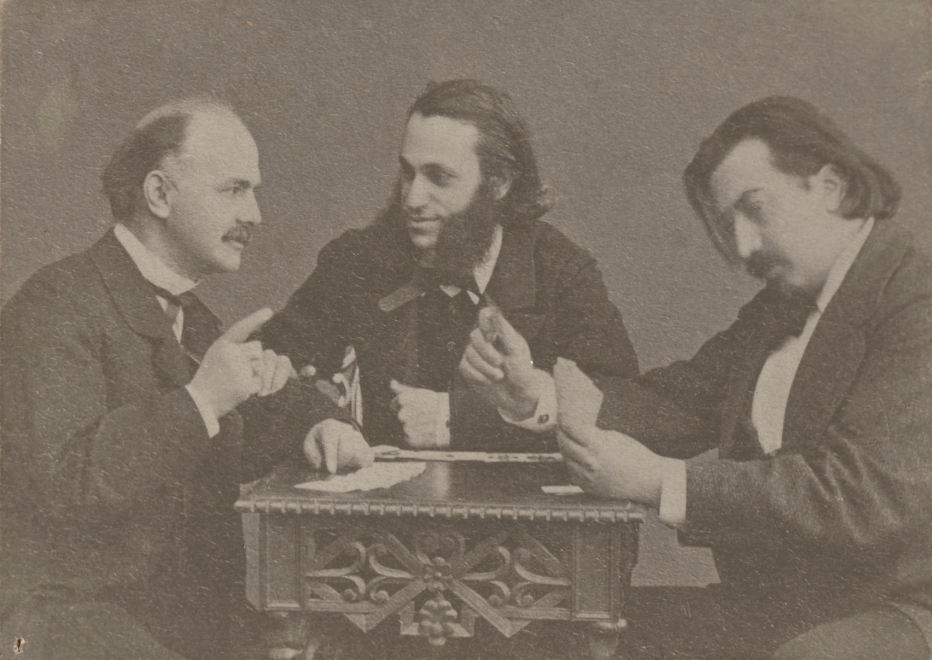
Henryk Wieniawski, Charles Davidoff and Wilhelm Wurm playing cards in Saint Petersburg, ca. 1865. Cabinet card by Emil Hasse. The photograph is a part of the Eugène Ysaÿe Collection, Music Division, Royal Library of Belgium, Mus. Ms. 161/4.
______________________________________________________________________________________
Henryk Wieniawski
b. 10 July 1835 in Lublin - d. 31 March 1880 Moscow
Great Artist:
- child prodigy, by way of exception accepted to the prestigious Paris Conservatory at the age of eight; in 1846, when he collected his Diploma cum laude, First Prize and Gold Medal, he was eleven years old
- violin virtuoso, one of the most magnificent personalities of the world violin who amazed rulers, throngs of music-lovers, and critics alike; the latter spared no compliment, and comparisons to the greatest magicians of the violin, incl. Niccolò Paganini, abounded
- respected composer, his work has found a permanent place in the repertoire of most outstanding violinists
innovative educator– professor of conservatories in St Petersburg and Brussels - giant of the stage who travelled extensively all his life to bring music – both his own and this composed by others – to audiences across Europe, Asia and America
- gave as many as eighteen concerts in Poznan: at the Municipal Theatre (present-day Arcadia building in Wolności Square), the Bazar Hotel, and the Lambert Odeon Hall (present-day Apollo Walkway).
Man of Flesh and Blood:
- son to physician Tadeusz Wieniawski, and musically-gifted Regina Wolff (sister of the pianist and composer Edward Wolff), brother (younger) to the comedy writer Julian, and (older) to the pianist and composer Józef
- husband to Isabelle Bessie-Hampton, an Englishwoman, niece to the Irish pianist and composer George A. Osborne
- father to seven children, of whom only four lived through infancy; of the four, only the daughter Irena Regina, known under her pseudonym of Poldowski, followed in her father’s footsteps, and devoted herself to music (to find international recognition as composer and pianist still in her lifetime)
- exceptional, fascinating personality endowed with a keen sense of wry humour
- unparalleled storyteller, the life and soul of the party – he fascinated listeners with colourful tales of artistic peregrinations across the world, which he could narrate in as many as six languages (!).
It is no secret that he played roulette and cards no less passionately than he played the violin. The daemon of gaming did not leave him until his death. What good was earning a fortune at concerts, if he left most of his fees in casinos?
_____________________________________________________________________
Did you know that Henryk Wieniawski…
- used to give concerts in fashionable foreign resorts?
These were the summer centres of European elites’ artistic and social life. Health resorts, such as Homburg, Ems, Nauheim, Baden-Baden, Wiesbaden, Karlsbad, or Marienbad were famous not only for their pump rooms and concert halls. They also had casinos…
- developed a special system to play roulette?
Wieniawski and Nikolai Rubinstein developed what they believed was a failsafe system to play roulette. When applied for 6-8 hours, it was meant to yield 500 francs a day. They were sure the system would let them break the bank in Wiesbaden. Before long, they were joined by Leopold Auer, who also made a contribution to their money pool. From now on, the friends’ lifestyle turned completely reckless. They dined at top restaurants, ordered best dishes, and paid no attention whatsoever to the prices. They made optimistic plans for the future, in which they would go as far as consider abandoning stage careers. Wieniawski declared he would concentrate solely on composing, and would only play the violin for pleasure. However, as it often happens in gambling, Lady Luck quickly turned her back on them. All the money went down the drain. To make his return to Russia possible, Wieniawski sold his Fantasia on Themes from Gounod’s “Faust” to music publisher Schott in Mainz.
- would go into debt?
It was already at the age of twenty-one that Henryk Wieniawski would regularly lose all his money on gambling. On 25 October 1856, in a letter written in Wiesbaden, he asked the violinist Raymund Dreyschock for a loan:
‘(…) You will be surprised to receive these lines from me (…), nonetheless, I do count on our good friendship, as well as on secrecy (…). I am currently in Wiesbaden, where I got flat broke playing. I have already written to Poland to have money sent as soon as possible, but unfortunately, it usually means ca. ten days of waiting. On 3 November, I have to be in Antwerp, where I have been engaged for a concert at the Grand Harmonie. Hence, I wish to ask you, if possible, for a grandissima favour, to lend me (…) an amount of fifty thalers, as I am forced to leave this place, otherwise I risk losing a 600-franc engagement (…). Your cordial friend, Henryk Wieniawski'.
- lost his violin at cards?
Hard to believe, yet Wieniawski did indeed pawn his beloved violin once. And what an instrument that was! Worth a fortune, it was a Stradivari violin which he got as a gift from music-lovers in Petersburg. It was only thanks to the help of François Van Hall, a well-known art patron, that the valuable work of the famous Cremonese maker was retrieved.
- apparently lost one of his compositions at cards?
Henryk Wieniawski’s predilection for gambling is associated with a rather mysterious story of a certain composition, Ballad and Polonaise Op. 38 by Henry Vieuxtemps. A widely circulated rumour has it that, in fact, it is a piece written by Wieniawski. According to one version, it was a gift to his Belgian friend; according to another – it was lost to him at cards, and offered by way of debt repayment. Even though the piece does reveal stylistic similarity, and contains subtle allusions to the Polish composer’s work, the hypothesis does not appear very plausible. Such similarities should not be found surprising, as both composers knew and respected each other, and traces of this fascination can be found in their compositions.
- died in poverty?
Wieniawski regularly gambled away high concert fees, and, as a result, died in poverty. After his death, numerous bills of debt, advance receipts, debt return prompt notes were found in his papers.
_______________________________________________________________________________
Family members, friends and other people
on the great Wieniawski’s great weakness:
Tadeusz Wieniawski, virtuoso’s father
‘(…) Both Hank and Joey, are but a pair of ne’er-do-wells. They don’t know the value of money, don’t think ‘bout the future. Decent lads, yet they keep losing everything. It was not a mere trifle what they reaped in London and Constantinople (…)! But if you ask where it is... Nowhere! It’s all gone!’
Julian Wieniawski aka Jordan, violinist’s elder brother
‘Henryk, my brother, (…) had permanent everyday concert engagements at Rhine resorts, that is in Homburg, Wiesbaden, in Ems, and even Baden-Baden, which places had their gambling houses. He received 1000-1500 francs per evening. He could perform at least three times in a week; everybody else in his place would have paid all the expenses of staying abroad, and would still put aside a handsome amount. Unfortunately, as is usually the case with artists, reliability did not go hand in hand with his artistry! (...)’.
‘A few days into our arrival, engaged in Wiesbaden, he suggested that I accompany him, to which I agreed for the purpose of visiting the beautiful location. At the Kurhaus, (…) my brother had already been there. From his cloudy and ruminative face, I could easily surmise that he had lost all he had. Timidly, I asked him whether he had something to go on to Schlangenbad (…) . He only flicked his hand, into which I slipped a few louis d’ors by way of loan. He cheered up, the jolly chap, and congratulated me on my perspicacity (…)’.
‘(…) The first trip we took to Ems, where Nikolai Rubinstein had been staying at the time, and with whom Henryk had a concert scheduled. (…) Nikolai (…) had a heart of gold and was very accommodating, yet he also had a weakness common to almost all artists of the time, for he was an avid player, and everything he earned, he would most often leave in gambling dens. Thus, leaving the two entrants of the art of roulette at the impressive green tables, I set out on my usual trek (…)’.
Vasily Bessel, his pupil, violinist, and publisher
‘(…) Wieniawski arrived in Moscow upon conclusion of a major tour in the south of Russia, which was quite a success financially, but customarily the money had already been spent, or rather lost at cards. (…) He was a gentleman of thorough education, very well brought up, witty and joyful, as often as not disposed rather sarcastically; he was always a big spender, even careless with money. He did not know its value (…)’.
Leopold Auer, violinist, Wieniawski’s friend
'(…) Entering the casino, who do you think I spotted at a distance, if not Henryk Wieniawski, who turned to me from behind one of the tables. With his long black hair à la Liszt, and with large, dark eyes full of expression… (…)’.
Vasily Bezekirsky, violinist
‘(…) On one occasion, when I knocked at the door of his room in Nizhny Novgorod, he shouted out loud ‘Who is it?’ I introduced myself. Quick steps could be heard, and Wieniawski, who had just jumped out of bed, showed up in the doorway. An exchange of friendly greetings followed, and the first thing he did – to my sincere amusement – was to have the valet bring a table and cards. This passion for cards and for all gaming stayed with him until his death. (…) No sooner had they served us tea, than we were seated playing whist, naturally, for very low stakes (...)’.
Anonymous Wiesbaden casino goer
'(…) At the roulette table, Wieniawski also had more optimistic moments. On one occasion, he bet 100 francs on some number. ‘Fortune has smiled at the artist,’ I thought (…) Having won once or twice, he was wondering whether to keep playing, when suddenly somebody patted him on the shoulder and took his arm. (…) He was honoured with this gesture of familiarity by the Prussian king Wilhelm I, who led the violinist away from our table and began to enquire about his plans for the future (…) After a while, the king bid the artist farewell, and left. Throughout the entire conversation, Wieniawski’s stakes lay on the roulette number, while the game continued. The artist was convinced the croupier had scooped his stake long ago, whereas what he saw was a pile of gold amassed after a few lucky turns of the wheel. (…) Wieniawski reckoned that this time good luck brought him 4000 francs. (…) He said jokingly: ‘This is what it really means to play for the king of Prussia’.
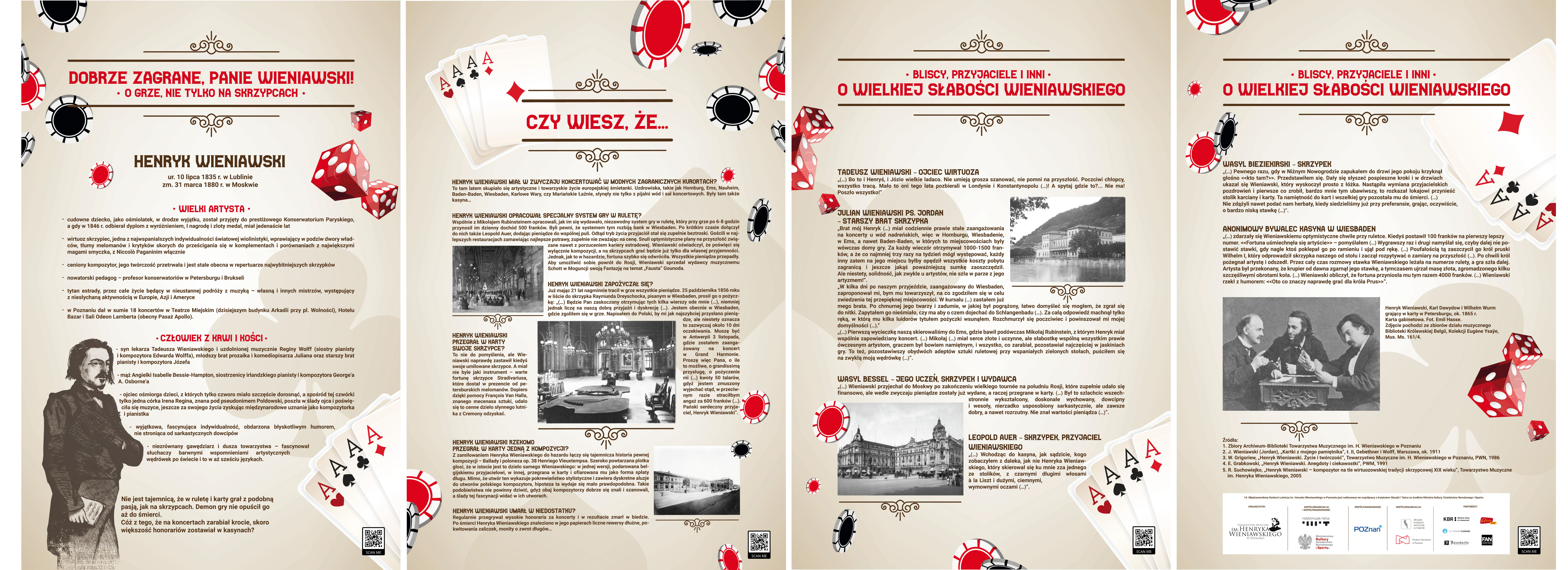
Sources:
- Zbiory Archiwum-Biblioteki Towarzystwa Muzycznego im. Henryka Wieniawskiego w Poznaniu
- J. Wieniawski (Jordan), "Kartki z mojego pamiętnika", t. II, Gebethner i Wolff, Warszawa, ok. 1911
- W. Grigoriew, "Henryk Wieniawski. Życie i twórczość", Towarzystwo Muzyczne im. H. Wieniawskiego w Poznaniu, PWN, 1986
- E. Grabkowski, "Henryk Wieniawski. Anegdoty i ciekawostki", PWM, 1991
- R. Suchowiejko, "Henryk Wieniawski – kompozytor na tle wirtuozowskiej tradycji skrzypcowej XIX wieku", Towarzystwo Muzyczne im. H. Wieniawskiego, 2005

